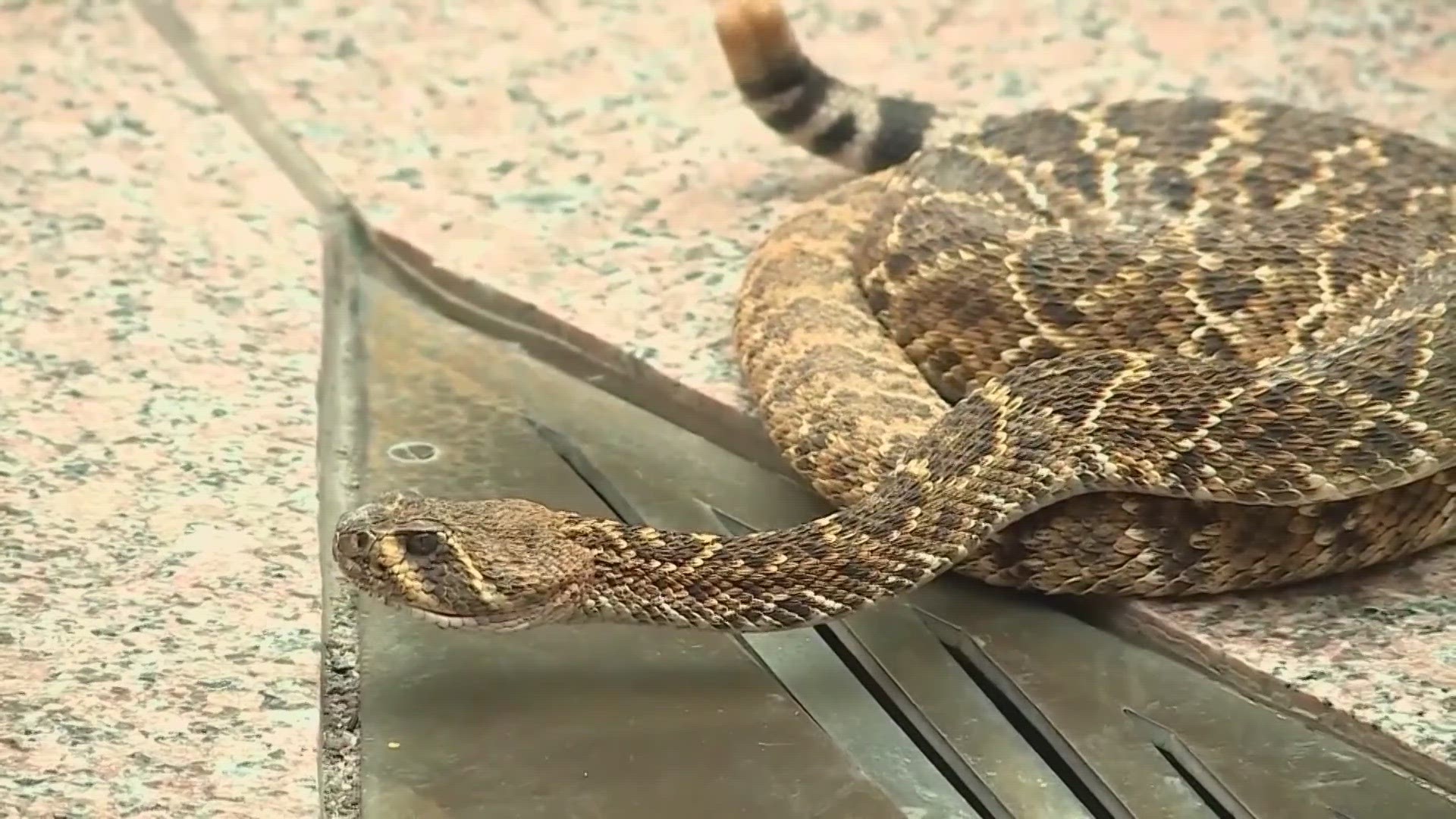TEXAS, USA — Snakes. They can either be your worst nightmare or your garden's best friend. Snake season is now slithering upon us, especially in Central Texas.
One Coryell County resident, Kelly Ras, says she saw her first rattlesnake only 20 feet away from her back door. Then, tragedy struck.
"Our St. Bernard was trying to figure out what it was and by the time my husband got outside, it had already bit her," Ras said. "To have one that big and that close to the house and whatnot, it was very unsettling."
So what should you do if you encounter the reptile?
6 News spoke with a medical toxicologist and emergency physician, Dr. Spencer Greene, who oversees the busiest snakebite service in the United States, HCA Houston Healthcare Kingwood.
"I moved to Texas 11 years ago because I realized that a lot of people in Texas really don't know how to manage snake bites," Greene said. "Now I divide my time between emergency medicine and toxicology. I'm on call 24/7 for all the toxicology emergencies, which include overdoses, unintentional exposures, occupational exposures and adverse drug reactions."
Greene has already treated 33 bites this year.
"To put things in perspective, last year, I had 80 bites for the year," Greene said. "I only had 15 at this time, so I'm more than twice as busy as last year."
While Greene treats snakebites, he is also passionate about educating people and healthcare professionals about how to respond and avoid unsafe practices in the immediate aftermath of a snakebite.
He says if you encounter a snake, do not intentionally interact with it.
"Almost all the bites we see, is the result of someone stepping on or stepping near the snake or reaching to a bush and getting near the snake," Greene said. "Be careful where you step and where you put your hand. Don't wear flip flops outside. Use a flashlight because that's how most bites happen. You're not aware of the snake. Prevention is key."
If a snake happens to bite you, don't panic and try to stay calm, he said.
"Remove any constrictive clothing or jewelry," Greene said. "You're going to be just fine with appropriate treatment."
"Ultimately you want to go to the hospital that has expertise in snakebites," Greene further explained. "One of the things I always tell people is it makes more sense to go to a hospital an hour away, unless you're having like significant systemic toxicity, which is really really rare, go to the place with an expert."
One common misconception is the usage of venom extraction devices.
"What they accomplish is they remove interstitial fluid, and they can concentrate the venom," Greene said. "You actually create a wound with those things."
Wraps and ice are other things Greene recommends to not use as they both increase local tissue injury.
Greene also says keeping the affected area below the heart level can actually make the damage much worse.
"When we elevate, it doesn't accelerate the absorption of venom," Greene said. "What it does is it decreases all the swelling. By elevating everything drains from distal to proximal and it minimizes the tissue injury and minimizes the damage to both phatic vessels."
As far as treatment goes, Greene suggests using antivenom, even though it can be quite expensive.
"We did a randomized clinical trial, looking specifically at copperhead bites," Greene said. "There's a statistically and clinically significant difference between those patients who got treated and those who didn't get treated at two weeks. We see people who go untreated who have symptoms for weeks or months and that people get treated. They are much better so much faster."
Overall, Greene says snakes are an important part of the ecosystem. Just try not to step on them or get in their territory and you should be fine, he said.
"People shouldn't fear snakes they should respect snakes," Greene said. "Just elevate, remove anything constrictive and get to the appropriate facility. Don't do ice. Don't cut and suck. Don't use an extraction device. Don't wrap it. That's it. It's really simple."

